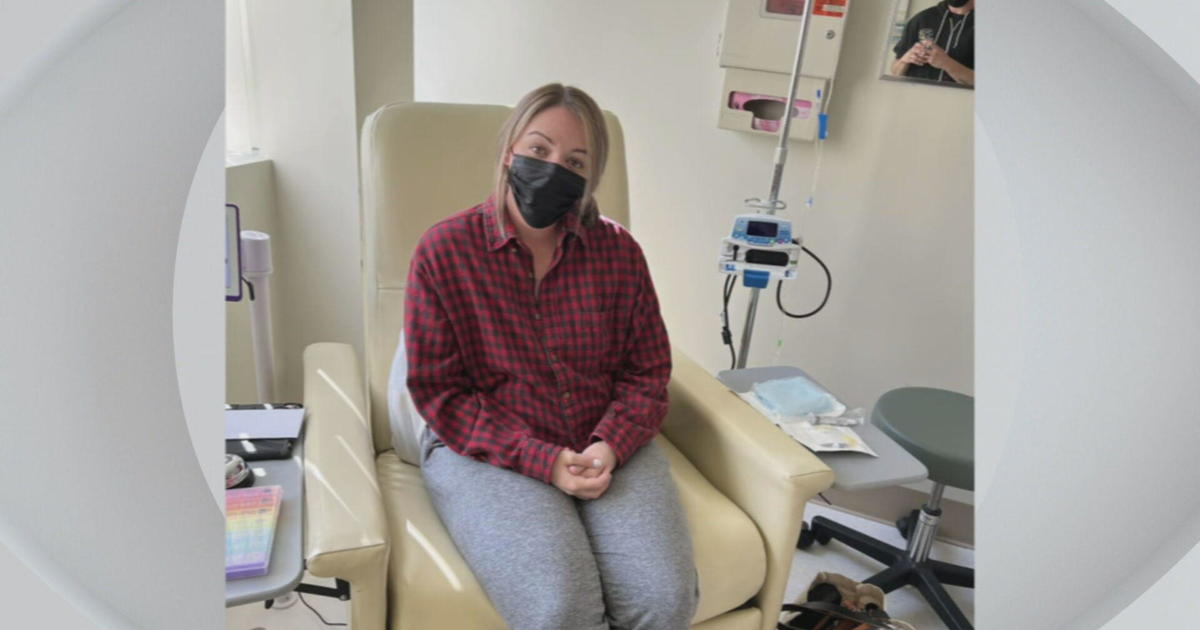Ten Things For Heart Health
#1 Kick Stress to the Curb
 (Credit: iStockphoto)
(Credit: iStockphoto)
"In our busy lives, stress is almost like a badge of honor," says Dr. Aditi Nerurkar, a primary care doctor at Beth Israel Deaconess Medical Center who studies and treats stress. She says day to day stress impacts almost every area of our health and is a known risk factor for heart disease. "Some stress is healthy," she says. "But too much can raise blood pressure, elevate stress hormones, and trigger unhealthy behaviors, like over-eating and smoking." Nerurkar encourages her patients to begin an exercise program, improve their diet, spend time with loved ones, get better sleep and meditate. "Sometimes using meditation with medication can be your best bet," she says. Feeling stressed at work or home? Take five minutes and meditate with Dr. Nerurkar.
Related Video:
#2 Watch Your Waistline.
 (Credit: Thinkstock)
(Credit: Thinkstock)
Lug around a 20-lb. bag of potatoes for a day and you'll get the idea pretty quickly; all that extra weight makes your heart work harder. "The majority of Americans could benefit from losing some weight," says Dr. Robb Kociol, a cardiologist in BIDMC's CardioVascular Institute. "Long term, extra weight takes a toll and can weaken the heart's ability to pump blood efficiently, a first step toward heart failure." As important, Kociol warns, excess weight, especially around the waistline, usually comes with elevated fat and cholesterol levels and a greater chance of narrowing of the arteries and blood clots.
#3 Move It.
 (Credit: iStockphoto)
(Credit: iStockphoto)
Make exercise part of your getting-up-in-the-morning routine. The American Heart Association recommends 30 minutes a day of heart-pumping exercise to improve your cardiovascular health. Walking is a great way for almost everyone to prevent weight gain and keep the heart strong. Teaming up with a friend or a group can help you get motivated or stick with an exercise program. Learn about BIDMC's free Walking Club.
#4 Time to Quit.
 (Credit: iStockphoto)
(Credit: iStockphoto)
Smoking isn't just bad for your lungs; it takes a toll on all your organs, including your heart and your blood vessels too. "Smoking just one cigarette constricts the vessels in your heart. Over time it can increase your heart rate, tighten your arteries and raise your blood pressure, all increasing your risk for heart attack, peripheral artery disease and stroke," says Dr. Sidhu Gangadharan, Chief of Thoracic Surgery in BIDMC's Chest Disease Center. The good news is that health benefits begin the day you quit smoking, and within a few years of stopping, your cardiovascular risks are similar to that of a nonsmoker. Learn more here: Reasons to Quit Smoking.
#5 Shake the Salt.
 (Credit: iStockphoto)
(Credit: iStockphoto)
Salt is everywhere, and it doesn't just come from the shaker. It's in canned soups, deli meats … heck, these days, it's even on chocolate. "Each day, most of us consume twice the amount of sodium, or salt than we should," says Dr. George Blackburn, the Director of the Center for the Study of Nutrition Medicine at BIDMC. "And, in salt-sensitive individuals, all that extra salt causes our bodies to store more water, which in turn puts more pressure on our blood vessels and heart." In fact, high blood pressure is one of the leading causes of heart disease, and consuming too much salt is a major culprit in causing high blood pressure. So, read food labels for sodium content, eat less processed and fast food, and shake a little less, too.
#6 You Are What You Eat.
 (Credit: iStockphoto)
(Credit: iStockphoto)
When it comes to your heart, it's not just about portion size and calories. It's also important to think about saturated fat, transfat, cholesterol, salt and fiber. "We all need to make our cardiovascular health a priority," says Elisabeth Moore, RD, LDN, a registered dietitian at BIDMC. "Changing our eating habits to be more heart healthy doesn't have to be hard." She recommends planning ahead and leaning on trusted recipes to ensure that we're using more vegetables, whole grains and low fat meats and fish. To learn more about cooking healthy meals without sacrificing flavor, download a free digital copy of The CardioVascular Institute's Hungry Heart Cookbook at www.bidmc.org/cookbook.
#7 Know Your Numbers
 (Credit: Thinkstock)
(Credit: Thinkstock)
"Your doctor can help you manage high blood pressure, cholesterol levels, elevated blood glucose and body mass index (BMI), as well as other conditions that contribute to cardiovascular disease, but only if she or he knows your numbers!" says Dr. Loryn Feinberg, Medical Director of the Women's Cardiovascular Program at BIDMC. It's important to have a thorough physical exam and routine bloodwork, especially for patients at elevated risk; for example, those with a family history of heart disease or a personal history of hypertension, high cholesterol, obesity, tobacco use or diabetes. "This enables you to interpret your numbers with your doctor and to formulate and implement a plan to lower your risk as much as possible," says Feinberg. "I find that this is an especially important process for women who often take care of their family members before they'll actually schedule an appointment for themselves."
#8 Get Some Quality Shut-Eye.
 (Credit: iStockphoto)
(Credit: iStockphoto)
We all know that sleep is good for our health. It's the time for our bodies to recharge and heal. It even boosts our immune system and helps with mood, but you might not know it's also essential to good heart health. "It goes both ways — cardiovascular disease can lead to sleep disturbance and a lack of good duration or quality sleep can contribute to heart risks like high blood pressure," says Dr. Suzanne Bertisch, a sleep medicine specialist at BIDMC. "Keeping the same wake-up time, going to bed when you're sleepy, reducing alcohol and caffeine consumption, exercising most days of the week, and reducing stress can all help you sleep better." Bertisch recommends talking with your doctor if you have any concerns about sleep or persistent trouble sleeping.
#9 Express Yourself.
 (Credit: Thinkstock)
(Credit: Thinkstock)
Whether it's a hug, holding hands or an old-fashioned slow dance, the simple act of touching can have a profound effect on your heart. "The feelings we get can cause our bodies to release a hormone called oxytocin, which slows our heart rate and lowers our blood pressure," says Dr. Meghan York, a cardiologist in BIDMC's CardioVascular Institute. Oxytocin is also released when we're emotionally engaged. Studies have shown feelings of happiness and hopefulness can cut the risk of heart disease in half. "It may be some time before we know if oxytocin itself is protective, counteracting stress hormones, or if more simply, when we're feeling good, we're more likely take good care of ourselves," says York. But, in the meantime, it can't hurt to snuggle up, pay a good deed forward or just get silly and have a good laugh.
#10 Enjoy Some Cocoa
 (Credit: Thinkstock)
(Credit: Thinkstock)
When we consume flavanols found in foods and drinks like tea, red wine, blueberries, cherries and dark chocolate, we benefit from the antioxidants they contain. "We know that flavanols facilitate brain cell connections and protect brain cells from toxins or the negative effects of inflammation," says Dr. Miguel Alonso-Alonso, a neurologist at BIDMC. And as it turns out, what's good for the brain is also good for heart and vascular health. Studies have shown that flavanols reduce inflammation and lower blood pressure. "A daily intake of 200 mg of cocoa flavanols is starting to emerge as a potential target," says Alonso-Alonso. But, he cautions, the content of cocoa flavanols in chocolate can vary a lot, and chocolate contains a lot of sugar and fat, so should be consumed in moderation.
Above content provided by Beth Israel Deaconess Medical Center. For advice about your medical care, consult your doctor.
Posted March 2015



